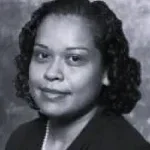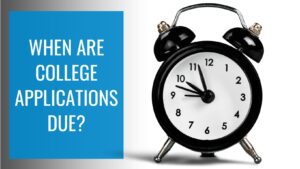There is no set age to prepare your child for the Ivy League or Ivy-like schools. However, there are many habits we can foster from a young age. Academic prowess, a high level of personal development, along with a strategic approach are all necessary while positioning your child to apply to an Ivy League or Ivy-like school.

Many clients who are successful in gaining admission to Ivy-like schools have a few characteristics in common. A natural curiosity, always wanting to know more. They are constantly working on projects trying to answer the many, many questions they encounter. Showing their drive and determination to finish something, even if it means extra effort to see it through. The passion they develop for a particular subject is ‘beyond their age’ and their depth of knowledge highlights the hours they have spent reading/researching/tinkering/building/playing, etc. developing much talent and skill. They become such great problem solvers that to them no issue is too big, they simply don’t have enough time. They are independent thinkers who need no prompting to complete a task or share their opinions. So as parents, how and when do you start to nurture this curiosity?
Reading from a young age about many topics, challenging your child to understand complex issues in society through conversations and exposure (read/watch/listen to the news for example), giving them permission to make mistakes, and showing them how to learn from these mistakes (since college only review transcripts from 9th – 12th grades, you have lots of room for exploration in middle school), encouraging them to try new things even if it’s different or uncomfortable, and when they are mature enough seek opportunities to collaborate with other talented students at school and on a larger scale.
Developing Good Habits
It’s never too early to develop good study habits such as reviewing your work periodically, turning in complete assignments on time, learning how to ask questions in and out of the classroom, reading more about a topic, and following-up with your teachers/mentors/parents, taking charge of a group project, asking for help, etc. Your child should develop good academic habits during middle school or early high school years.
What about the Academic Curriculum?
Map out your four years of high school courses keeping in mind that you should take four years of all five (5) core subjects- English, Math, Science, History, and a World Language.
Reaching Advance Placements in all core areas is not required, but a bonus and will position you well for a competitive admissions process. Similarly, if your high school offers the International Baccalaureate (IB) program, pursuing the diploma will offer you an advantage. This means aligning yourself well in middle school by taking a world language if offered, advancing your math curriculum, developing your writing skills, and good study habits. Some Ivy like schools have partnered with Schoolhouse.World to provide an option for students who do not have access to calculus or science subjects.
English– Develop excellent reading/comprehension and writing skills. Pay attention to your child’s writing ability and take additional steps to strengthen this skill in middle school or early high school years. Reaching AP language or AP Literature or electives of similar caliber is recommended.
Math– If you have the opportunity to advance your math curriculum in middle school, take the challenge, especially if you are interested in STEM. This may result in taking more advanced math courses and being more competitive for STEM summer programs during your high school years. Take AP calculus AB and/or BC if available. If your high school does not offer advanced math courses, take the most challenging courses available to you.
Science- Taking at least one year each of biology, chemistry, and physics is required. Reaching AP levels in at least one of these subjects will be beneficial. If you are applying to an Engineering program, reaching AP Physics is highly recommended.
History– Many Ivy-like schools require three years of history/social science courses. So plan to take history/social sciences all four years, unless your high school has a limit.
World Language– Many middle schools offer introductory courses in language. Beginning to learn a second or third language in middle school is a bonus. This means in 9th grade you may be placed in a higher level and will most likely reach the AP level of that subject prior to 12th grade.
When should I join extracurricular activities?
Join several clubs in middle school and early high school to explore and learn about different topics. By 11th grade, you should have a good understanding of which clubs you really enjoy and should seek out leadership positions. You should participate in activities both in and out of school, especially related to your academic interest. Read about the role of extracurricular activities in the admissions process to learn more.
Standardized Test and the Ivy Leagues
Standardized tests play a part of the application process and if you have followed my advice to read a lot from a young age, develop your writing skills, and take a challenging math curriculum, you should be in a good position by 11th grade to take the SAT or ACT exams. Of course there are strategies and ways to improve your test scores as you prepare for these exams. Review What is a Good SAT Score for the Ivy Leagues to learn more about testing expectations.
How can a consultant help me prepare for the Ivy League?
My work with clients ranges from understanding their strengths to developing their weak areas, recommending classes, activities and programs, and how to strategically position them to have the best outcomes in the college application process. If you would like to learn about how to strategically position your child for the Ivy League or Ivy like Schools, reach out to Solomon Admissions Consulting. Our experienced team can guide you through the developmental years and through the application process.

Former Associate Director of Admissions at MIT
Former Associate Director of Admissions at Macalester College
Former Assistant Director of Admissions at Macalester College
Former Admissions Counselor at St. Olaf College
3 Years in MIT Admissions
9 Years in Macalester Admissions
4 Years in St. Olaf Admissions
20,000+ Applications Read and Evaluated
Philana earned her Bachelor’s degree from St. Olaf College and Master’s degrees from St. Mary’s University in Minnesota. With over 16 years in admissions, she has a track record of building relationships, creating accessible education policies, and increasing diversity in student bodies.


